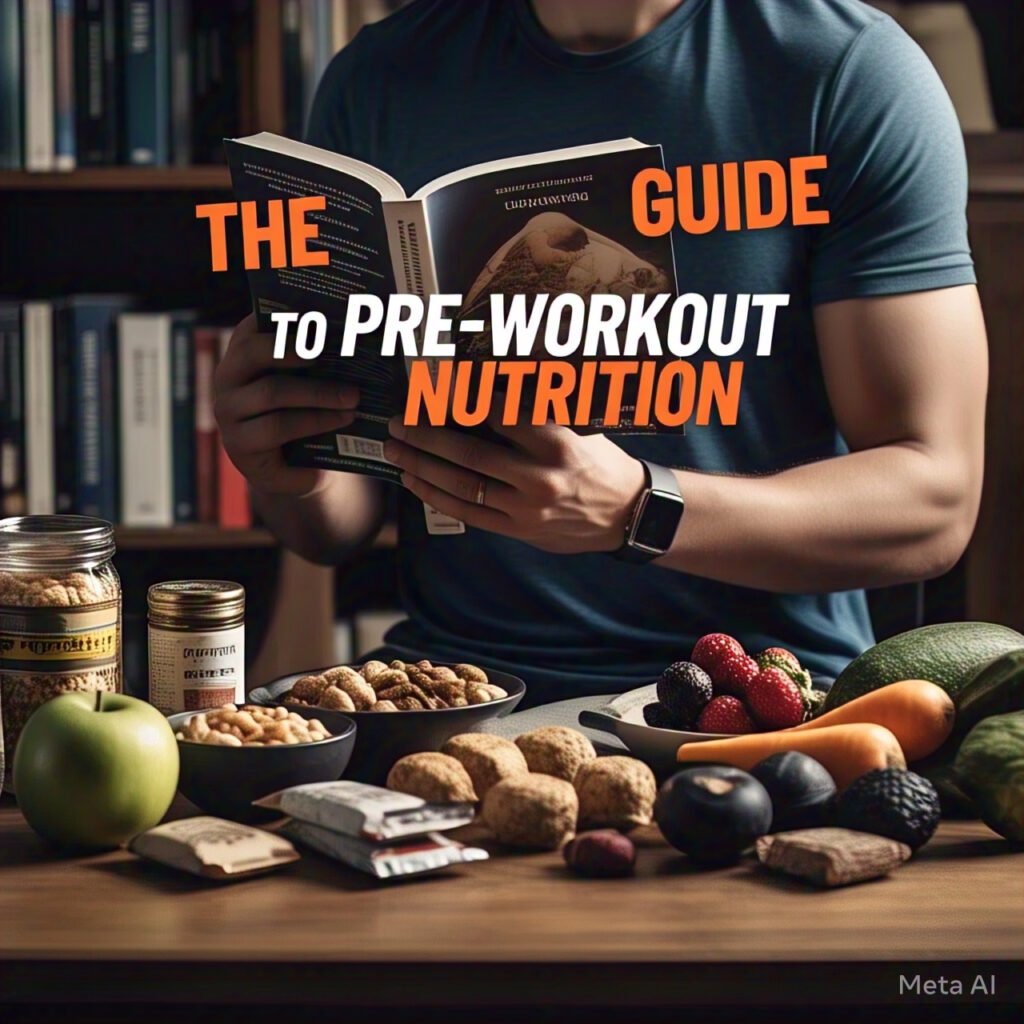
The Essential Guide to Pre-Workout Nutrition
Pre-workout nutrition is a crucial aspect of maximizing your performance, endurance, and overall muscle function during exercise. The right foods consumed before your workout can provide you with the energy you need, enhance your performance, and help prevent muscle fatigue. Here’s a breakdown of what to eat before exercise to ensure you get the most out of your workout.
1. The Importance of Pre-Workout Nutrition
Pre-workout nutrition is key to fueling your body with the necessary nutrients that will support optimal performance. Without proper fueling, you may experience low energy, early fatigue, and reduced strength. When you eat the right foods before your workout, you optimize your body’s ability to perform and recover more efficiently, helping you make the most of your exercise routine.
2. Macronutrient Breakdown:
The three main macronutrients that fuel your workout are carbohydrates, protein, and fats. Each plays a unique role in supporting performance and muscle function during exercise.
- Carbohydrates (60-70% of your pre-workout meal): Carbohydrates are your body’s primary source of energy during exercise, particularly for high-intensity workouts. When you consume carbs, your body breaks them down into glucose, which is used as energy for your muscles. Eating carbohydrates before exercise ensures that your muscle glycogen stores are topped up, providing sustained energy for prolonged or intense activity.
- Examples: Whole grains (brown rice, quinoa, oats), fruits (bananas, apples), sweet potatoes, and vegetables.
- Protein (20-25% of your pre-workout meal): Protein is essential for muscle repair and growth. Although protein is not the primary source of energy during exercise, consuming a moderate amount before your workout can support muscle recovery, reduce muscle breakdown, and prevent catabolism (muscle tissue breakdown) during intense exercise.
- Examples: Lean meats (chicken, turkey), Greek yogurt, eggs, tofu, or a protein shake.
- Fats (10-15% of your pre-workout meal): While fats are a slower source of energy compared to carbohydrates, they play an important role in supporting endurance, especially in longer workouts or endurance training. It’s best to consume fats in moderate amounts before a workout since they take longer to digest.
- Examples: Nuts, seeds, avocado, and olive oil.
3. Timing Your Pre-Workout Meal
The timing of your pre-workout meal is also critical for maximizing performance. Ideally, you should consume your pre-workout meal 1.5 to 3 hours before your workout. This gives your body enough time to digest and start utilizing the nutrients.
- 1.5 to 3 hours before: A larger meal containing a balance of carbohydrates, protein, and fats is best. This gives your body time to digest and store energy for your workout.
- 30 to 60 minutes before: If you don’t have time for a full meal, opt for a smaller snack. Focus on easily digestible carbohydrates and a small amount of protein, like a banana with peanut butter or a protein bar.
4. Hydration Before Exercise
Hydration is just as important as the food you eat. Dehydration can negatively impact your performance, so make sure to hydrate well before your workout. Aim to drink 16-20 ounces of water 1-2 hours before your workout and 8-10 ounces right before you start exercising.
5. What to Avoid
- Heavy, high-fat meals: Fat takes longer to digest, which may lead to discomfort during exercise. Avoid greasy or fried foods before working out.
- Excessive amounts of fiber: While fiber is important for overall health, consuming high-fiber foods too close to a workout can lead to bloating or discomfort.
- Sugary snacks or energy drinks: While sugar provides a quick energy boost, it can lead to a rapid crash, which can negatively affect your workout performance. It’s better to choose complex carbs for steady energy release.
6. Examples of Great Pre-Workout Meals and Snacks
- Full Meal (2-3 hours before):
- Grilled chicken with quinoa and steamed vegetables.
- Whole wheat toast with almond butter and banana slices.
- Brown rice with salmon and avocado.
- Oatmeal with berries and a scoop of protein powder.
- Snack (30-60 minutes before):
- A banana with a small handful of almonds.
- Greek yogurt with honey and some berries.
- A protein smoothie with spinach, banana, and protein powder.
- A slice of whole-grain toast with peanut butter.
7. Boosting Performance with Pre-Workout Supplements (Optional)
While whole foods are always the best option, certain pre-workout supplements can also help enhance energy, focus, and endurance during exercise:
- Caffeine: Known for boosting alertness and reducing the perception of effort, caffeine can help improve performance, especially in endurance sports or intense training.
- Creatine: A well-researched supplement that can help improve strength and power during high-intensity workouts.
- Branched-Chain Amino Acids (BCAAs): These amino acids help reduce muscle breakdown and support muscle endurance during long or intense workouts.
- Beta-Alanine: This compound can help buffer lactic acid buildup, allowing you to exercise harder for longer.
8. Listen to Your Body
Keep in mind that everyone’s body responds differently to food and supplements. What works for one person might not work for another. Pay attention to how your body feels during workouts and adjust your pre-workout nutrition accordingly. For example, if you feel sluggish or too full during a workout, try eating smaller portions or adjusting your timing.
Conclusion: Proper pre-workout nutrition is an essential component of a successful fitness regimen. By fueling your body with the right combination of carbohydrates, protein, and fats at the optimal time, you’ll have the energy, strength, and endurance to perform your best. Hydration is also key to maintaining performance, while strategically incorporating supplements can further enhance your results. By understanding and prioritizing pre-workout nutrition, you’ll maximize your workout performance and accelerate your progress toward fitness goals.
